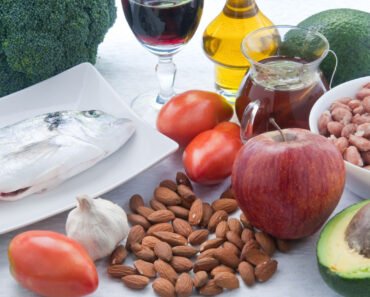Maintaining healthy cholesterol levels is essential for overall well-being, and many people are seeking natural ways to achieve this. In this post, we’ll explore seven effective methods to improve your cholesterol levels naturally, focusing on lifestyle changes, diet, and exercise. By incorporating these changes into your daily routine, you can enjoy a healthier life without relying on potentially harmful medications.
Embrace a Balanced Diet:
Incorporate fresh fruits and vegetables, whole grains, lean protein, and healthy fats into your meals. Key examples include:
- Olive oil and fish oil for their heart-healthy benefits.
- Avoid hydrogenated oils and processed foods by reading nutrition labels.
- Steer clear of fast food, which is high in unhealthy fats and sodium.
- Limit your intake of sugar-laden treats like cookies, cakes, and muffins.
Reduce Stress:
Reducing stress is easier said than done… But Studies have proven that, managing stress can positively impact your cholesterol levels. Consider trying these relaxation techniques:
- Biofeedback or meditation to calm your mind.
- Take occasional breaks for leisure activities or short trips.
- Limit caffeine consumption, especially in soda and coffee.
- Decrease screen time before bed
Engage in Regular Exercise:
Physical activity can lower LDL (bad) cholesterol and increase HDL (good) cholesterol. Aim for at least 30 minutes of moderate exercise daily, such as:
- Brisk walking or jogging.
- Swimming or cycling.
- Strength training or yoga.
Quit Smoking:
By giving up smoking, you’ll not only improve your overall health but also naturally increase your HDL cholesterol levels.
Stay Hydrated:
Drinking water helps flush toxins from your body, which can indirectly contribute to better cholesterol levels. Studies show that we should drink more than 11 cups of water a day for women, and 15 cups for men.
I’ve found that I don’t have to rely solely on water to stay hydrated. Surprisingly, the food I eat can make a big difference in meeting my fluid needs. For instance, I’ve discovered that fruits and vegetables like watermelon and spinach, which are nearly 100% water by weight, really help to keep me feeling refreshed and well-hydrated.
Optimize Your Diet with Cholesterol-Lowering Foods:
Incorporate these cholesterol-friendly foods into your diet:
- Healthy fats and oils, like olive oil and fish oil. – Diets like the Mediterranean diet are rich in these healthy fats, and I’ve found that embracing these eating habits has made a positive impact on my well-being.
- Fresh vegetables, fruits, and legumes.
- Fish (mercury-free).
- Grapes, orange juice, and blueberries.
- Nuts, seeds, oats, and soluble fibers. – Nuts are great alternative for snacks
- Avocado, garlic, and curry.
Avoid the following:
- Caffeine, wheat, and red meat.
- Muffins, soda, and alcohol.
- Fast food, cookies, and canned or prepared food.
- Refined sugar.
Consider Natural Supplements:
Certain supplements may help improve your cholesterol levels, such as:
- B-complex vitamins.
- Vitamins C, D, and E.
- Coral calcium.
- Fish oil.
- Plant sterols.
- Policosanol.
- Magnesium.
Consult your healthcare professional before starting any new supplements.
TLDR;
Improving your cholesterol levels naturally doesn’t require a complete overhaul of your life. By making these manageable changes to your diet, exercise routine, and lifestyle, you can enjoy better health without relying on costly and potentially harmful cholesterol medications.

